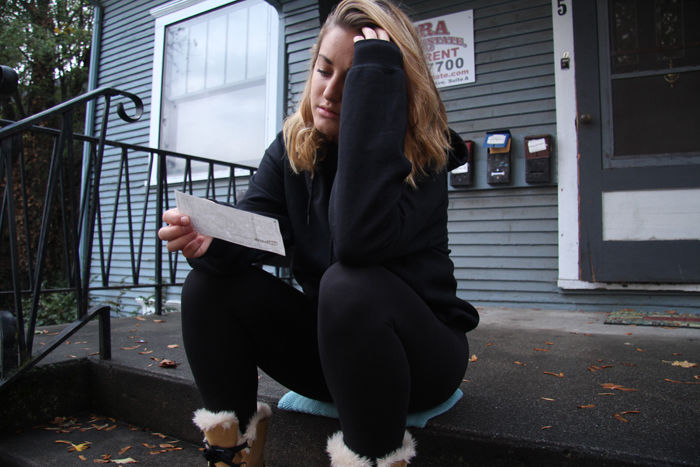Vote ‘Yes’ on Initiative-1433
If passed, Washington State’s Initiative-1433 will raise the state’s minimum wage to $13.50 over the next four years, starting in January 2017.
November 8, 2016
As a college student, I’m sure my peers can relate when I say it is hard being broke.
A 2013 study from the U.S. Census Bureau showed that over half of college students living off campus are below the poverty line.
Jack Sorensen, spokesperson for Raise Up Washington, a coalition supporting I-1433, explained that minimum wage isn’t enough to pay for a one bedroom apartment plus living expenses.
This is especially true for college students in Pullman, where apartment companies can inflate the leasing prices because housing is crucial for students.
If the people of Washington decide to pass I-1433, the next cohort of college students, who rely on their part-time minimum wage hours, will have more disposable income.
The passing of I-1433 would incrementally raise the minimum wage to $13.50 by 2020, starting by raising it from the current $9.47 to $11.00 in 2017.
It’s estimated that, under the current law, the minimum wage will only be $10.56 in 2021.
So, if we stick with the same system, the minimum wage will only increase by $1.09 in five years.
It’s easier for me to relate when hearing about the financial struggles of classmates. But Sorensen explained that the average age of minimum wage workers is 35, and people working these jobs come from all walks of life.
One of the more notable fields with a majority of minimum wage workers is the food service industry.
Considering the preparation and handling of your food is another way to look at the issue on a grander scale besides just looking at college students.
Whether it be at the college dining halls, restaurants or at the grocery stores, every day we rely on others to ensure that food is appropriately handled.
If passed, the initiative will also force businesses to offer paid sick leave to their employees, something that is not currently required of minimum wage positions.
Improper cooking techniques are the leading cause of food related illnesses, usually from one sick person contaminating the food of others. Individuals know they’re sick but, with their minimum wage job and barely being able to pay bills as it is, they can’t afford to miss a day.
One in five employees have admitted to going to work sick out of fear of losing their jobs, Sorensen said.
The counter argument that businesses owners are against the initiative is false. Just look at the numbers; so far, the “yes” side of I-1433 received over 4 million dollars. Whereas the “no” supports have only raised around $100,000.
Sorensen put it simply, business owners want two things—“healthy employees and customers.”
Both will be more prevalent once this initiative is passed.
If you’re still not a firm believer, or want to see evidence where raising the minimum wage has helped the economy, then just take a look at history.
Save for during the recession of 2008, raising the minimum wage has caused the state’s overall job growth to increase for the last 70 years, Sorensen said.
According to Washington State’s 2016 Voter’s Guide, I-1433, if passed, will put $2.5 billion into local economies.
As a result, Sorensen said passing I-1433 will be, “good for workers, good for families, and good for the economy.”
If that doesn’t convince you, I don’t know what will.
Editor’s note: This column is part of a head-to-head series. Read the other side here.
Edmund Frazer Myer is a senior communication major from Onalaska. He is enrolled in the Chehalis Tribe. He can be contacted at 335-2290 or by [email protected]. The opinions expressed in this column are not necessarily those of the staff of The Daily Evergreen or those of The Office of Student Media.



















